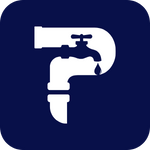Mastering HVAC Marketing: Strategies for Success in a Competitive Landscape Businesses must employ successful marketing strategies to survive in the dynamic HVAC (heating, ventilation, and air conditioning) industry. HVAC companies must use creative marketing strategies because the competition is growing along with the industry. From comprehending the market to utilizing offline & online tactics for optimal effect, this post will examine a number of HVAC marketing topics. A thorough grasp of the market environment is essential for marketing HVAC services successfully. The HVAC sector is known for its seasonal variations, with the highest demand occurring during severe weather.
Key Takeaways
- The HVAC market is highly competitive and constantly evolving, requiring companies to stay updated on industry trends and consumer preferences.
- A strong online presence is essential for HVAC companies to reach and engage with potential customers, as well as to establish credibility and trust.
- Social media platforms offer HVAC companies a valuable opportunity to connect with their target audience, share valuable content, and build brand awareness.
- Implementing effective SEO strategies can help HVAC companies improve their online visibility and attract more organic traffic to their website.
- Generating quality leads through online marketing involves creating compelling content, utilizing targeted advertising, and optimizing lead capture forms on the company website.
This implies that HVAC firms need to be ready to modify their marketing plans in order to conform to these developments. For example, demand for air conditioning services may increase in the summer, whereas demand for heating services may increase in the winter. Also, it is essential to comprehend the demographics of your customers. Everybody has different needs and preferences when it comes to HVAC services: commercial businesses, property managers, and homeowners.
HVAC businesses can improve their outreach efforts by segmenting the market and focusing marketing messages on particular audiences. Businesses can position themselves more effectively by gathering useful insights into what prospective customers are seeking through market research and customer feedback analysis. For HVAC companies, having a strong online presence is essential in the current digital era. An effective online strategy is built on a foundation of a well-designed website. It should be search engine optimized, responsive to mobile devices, and easy to use.
Because prospective clients frequently use the internet to look for nearby HVAC services, it is crucial for companies to show up high in search results. HVAC businesses should think about producing educational content that answers frequently asked questions and concerns by customers in addition to having a functional website. In addition to increasing search engine rankings, blog entries, how-to manuals, and frequently asked questions can establish authority in the industry.
| Metrics | Key Performance Indicators |
|---|---|
| Website Traffic | Number of unique visitors, page views |
| Conversion Rate | Percentage of website visitors who take a desired action |
| Lead Generation | Number of leads captured through online forms |
| Customer Engagement | Time spent on site, bounce rate, social media interactions |
| Search Engine Rankings | Position in search engine results for relevant keywords |
By giving prospective customers useful information, companies can gain their trust and persuade them to pick their services over rivals. Social media platforms present a special chance for HVAC businesses to interact with their audience and demonstrate their knowledge.
Attention-grabbing visual content, like before-and-after pictures of installations or repairs, can work especially well. Also, social media makes it possible to communicate with customers directly. Improving customer satisfaction and loyalty can be achieved by promptly answering questions & comments.
Targeted social media advertisements can also assist in reaching particular demographics according to their location, hobbies, and habits. Marketing initiatives are directed toward people who are more likely to need HVAC services thanks to this focused strategy. An essential part of HVAC companies' internet marketing strategies is search engine optimization, or SEO. Websites can be made more visible in search engine results pages (SERPs) by optimizing them for relevant keywords.
To find the terms that prospective clients use when looking for HVAC services, keyword research must be done. Title tags, meta descriptions, and header tags can all be optimized with pertinent keywords as part of on-page SEO strategies. Also, producing excellent content that responds to frequently asked queries or pain points can improve user experience and promote longer site visits. Off-page SEO tactics, like constructing backlinks from reliable sources and using local SEO techniques, can help a business become more visible online. The ultimate goal of any marketing strategy is to generate quality leads.
For HVAC businesses, this entails drawing in prospective clients who are sincere about their offerings. Online advertising campaigns that are specifically targeted are one efficient method of generating leads. Advertisers can reach consumers who are actively looking for HVAC solutions by using pay-per-click (PPC) platforms such as Google Ads. Another strategy is to provide useful resources in return for contact details. For instance, offering downloadable energy efficiency guides or free estimates can encourage users to provide their email addresses.
After obtaining contact details, companies can use follow-up emails and tailored offers to cultivate these leads. One of the best strategies for retaining clients and nurturing leads in the HVAC sector is still email marketing. By creating an email list through social media campaigns or website sign-ups, businesses can communicate with both current and potential clients directly with tailored messages. Sending out newsletters on a regular basis with company updates, seasonal promotions, and HVAC maintenance advice can keep readers interested. In email marketing, personalization is crucial.
Conversions and open rates can be considerably raised by customizing messages according to past interactions or customer preferences. Businesses can also send targeted offers to distinct groups by segmenting their email lists, which guarantees that recipients receive pertinent content that speaks to their needs. HVAC businesses must constantly monitor and assess their online initiatives to guarantee the efficacy of their marketing plans. Gaining knowledge about user behavior, website traffic, and conversion rates is possible by using tools such as Google Analytics. Businesses can determine which marketing channels are effective and which may require modifications by keeping an eye on these metrics.
Making data-driven decisions is made possible for businesses by routinely evaluating key performance indicators (KPIs). For example, if a certain social media campaign is producing high levels of engagement but low conversions, it might be time to reconsider the call-to-action or messaging employed in those posts. HVAC companies can enhance their marketing strategies for greater outcomes by keeping up with performance trends.
Even though online marketing is crucial in the current digital environment, combining offline tactics can increase overall efficacy. Conventional marketing techniques, like community sponsorships, local newspaper ads, and direct mail campaigns, are still useful for reaching particular demographics that might not be as engaged online. A unified brand presence that supports messaging across various channels is produced by combining offline and online initiatives. For instance, a local HVAC company might distribute flyers & launch a social media campaign to advertise a special deal.
By ensuring that potential customers come into contact with the brand through a variety of touchpoints, this multifaceted approach increases the likelihood that they will convert. To sum up, mastering HVAC marketing necessitates a strategic approach that includes knowing the market, building a strong online presence, using social media effectively, putting SEO strategies into practice, using email marketing to generate quality leads, monitoring performance metrics, and combining offline and online strategies. HVAC businesses can establish themselves as leaders in the field and successfully connect with their target market by implementing these strategies. The time has come to act!
Assess your present marketing plans and think about how you can use these insights to improve the performance of your HVAC company in a cutthroat industry. Adopting these tactics will open the door to expansion and higher client engagement, regardless of whether you're just getting started or want to improve your current strategy.
If you are interested in learning more about HVAC online marketing strategies, you may want to check out this article on plumbing content marketing in Little Rock, Arkansas. This article discusses how creating valuable content can help attract and retain customers in the HVAC industry. You can read more about it here.
FAQs
What is HVAC online marketing?
HVAC online marketing refers to the use of digital channels and strategies to promote heating, ventilation, and air conditioning (HVAC) products and services. This can include tactics such as search engine optimization (SEO), pay-per-click advertising, social media marketing, and email marketing.
Why is HVAC online marketing important?
HVAC online marketing is important because it allows HVAC businesses to reach a wider audience, generate leads, and increase brand awareness. With more and more consumers turning to the internet to research and purchase HVAC products and services, having a strong online presence is crucial for business success.
What are some key components of HVAC online marketing?
Key components of HVAC online marketing include a well-designed and user-friendly website, search engine optimization (SEO) to improve visibility in search engine results, pay-per-click advertising to drive targeted traffic to the website, social media marketing to engage with potential customers, and email marketing to nurture leads and retain customers.
How can HVAC businesses benefit from online marketing?
HVAC businesses can benefit from online marketing by reaching a larger audience, generating more leads, increasing brand visibility, and ultimately driving more sales. Online marketing also allows for better targeting and tracking of marketing efforts, leading to a more efficient use of marketing resources.
What are some best practices for HVAC online marketing?
Some best practices for HVAC online marketing include creating high-quality and relevant content, optimizing the website for mobile devices, utilizing local SEO strategies to target local customers, engaging with customers on social media, and regularly analyzing and adjusting marketing strategies based on performance data.






